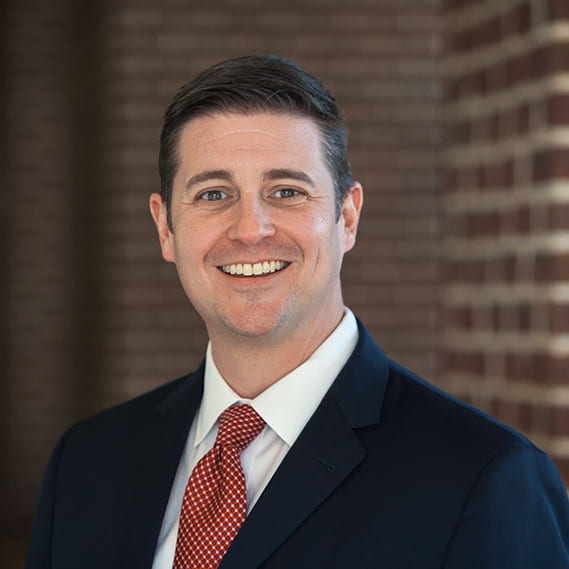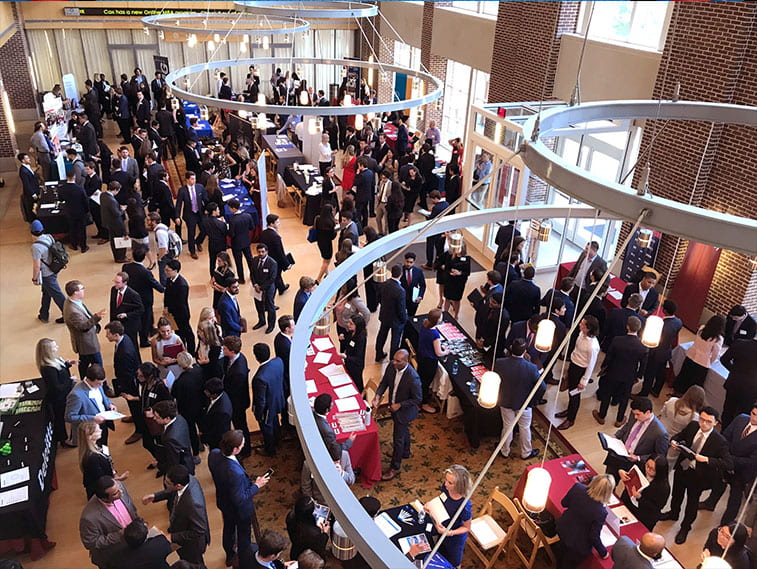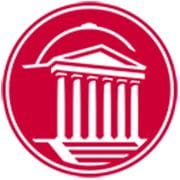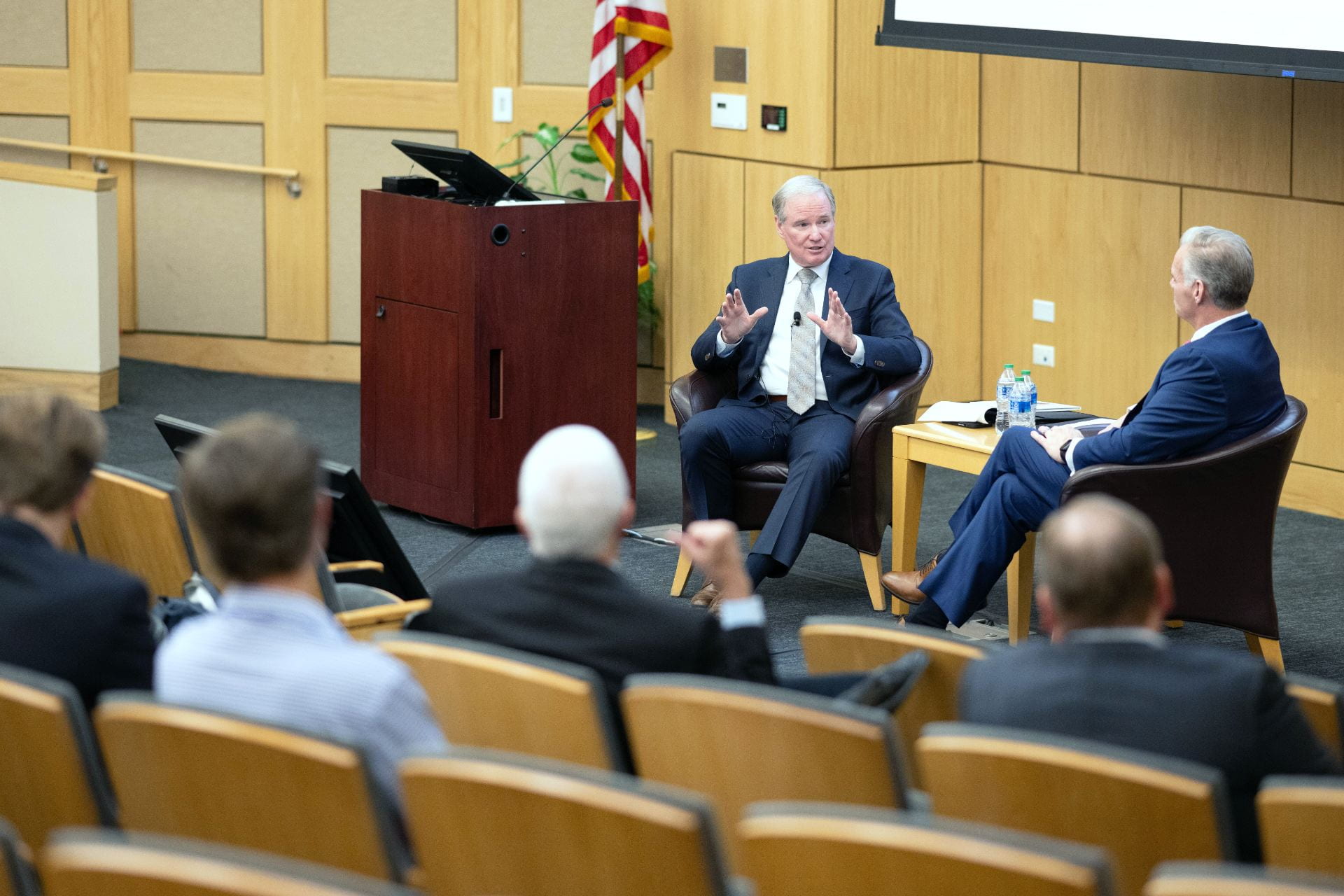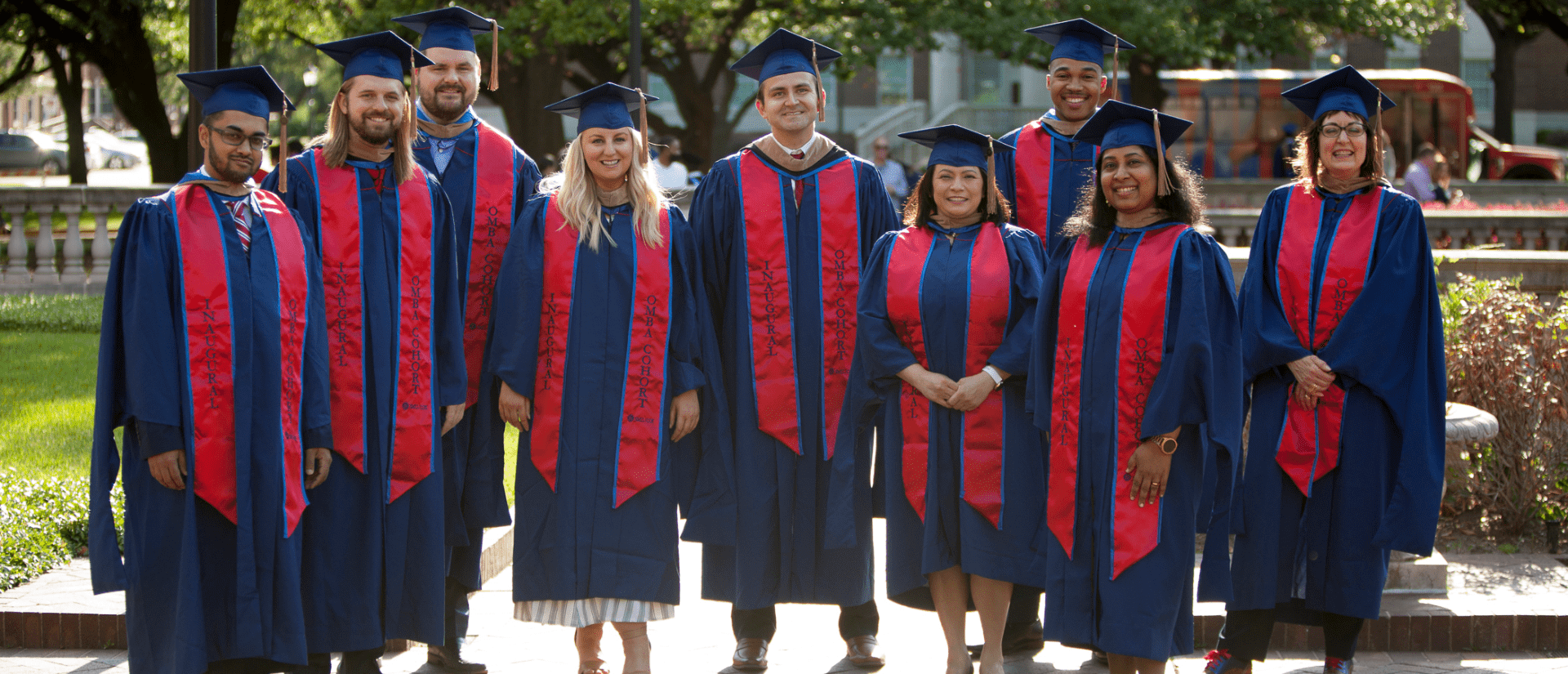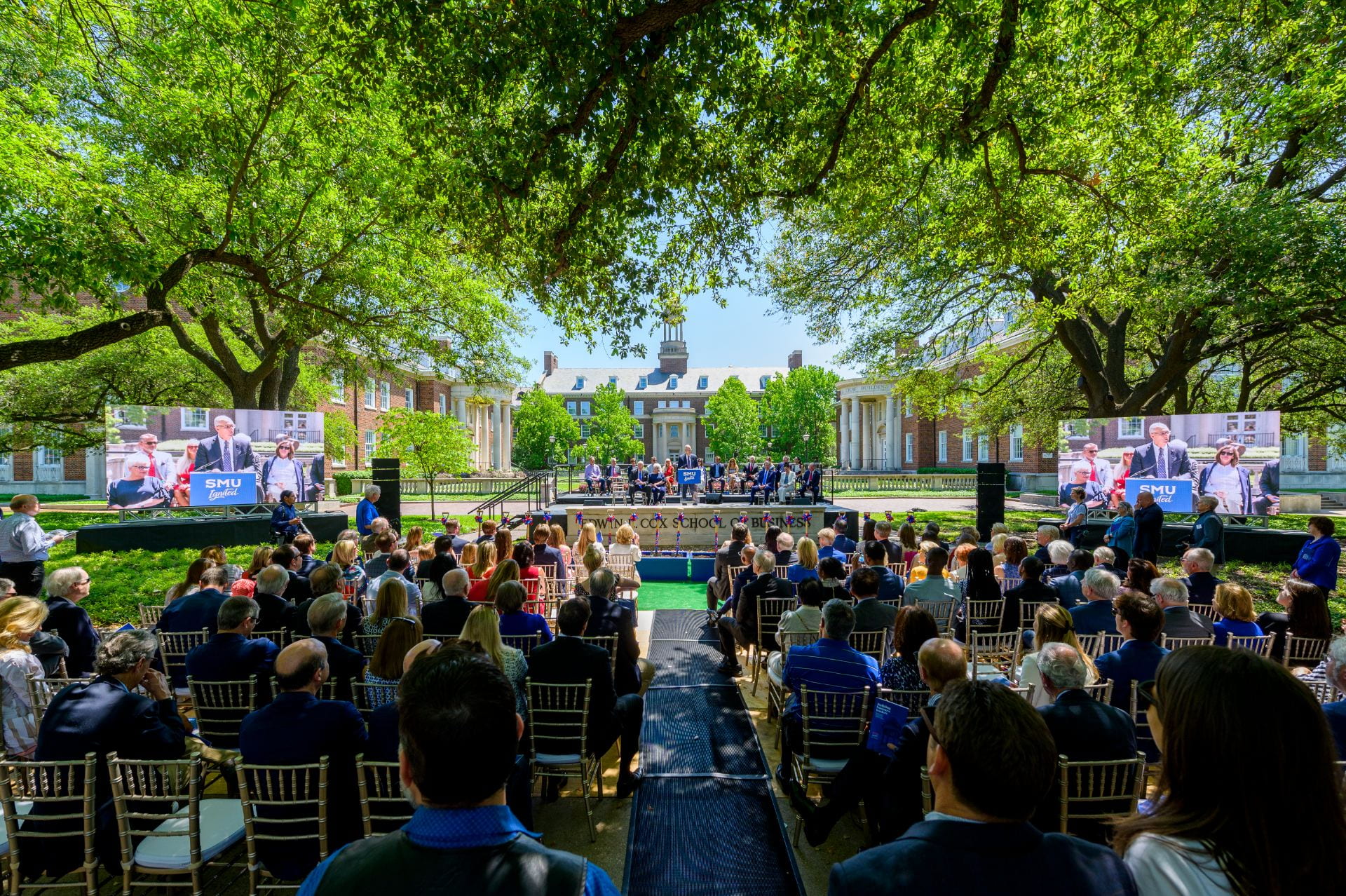At SMU Cox, preparing students for their careers is just as important as providing the quality business education that brought them to the School. In order to give students a holistic experience and set them up for success after they graduate, the Cox School has brought graduate admissions and career management together — both under the purview of Senior Assistant Dean Jason Rife. This move allows students to make the most of their time at Cox while working to advance in their field — or move to a new one. And with reimagined Career Management Center offices in Cox’s new cutting-edge facility, students have all the tools and resources they need to become both job-ready and future-prepared. Supporting this effort are the dedicated career coaches who work with students to ensure their career goals and options are aligned. With this collaborative and innovative approach, SMU Cox sets itself apart from other academic institutions — and prepares students to lead in an ever-evolving business world.
Preparing Students to Lead
Typically, schools treat graduate admissions and career management as separate, siloed units. That is no longer the case at SMU Cox School of Business. The Career Management Center for both undergraduate and graduate students was for two years under the purview of Executive Director Jason Rife. In March, Rife was named senior assistant dean of the Cox Career Management Center and Graduate Admissions. For students hoping to launch successful careers, this is good news.
“The ultimate goal is having a holistic experience for our students,” Rife says. “The vast majority of students who return to school for graduate business education do so for career purposes. They want to advance in their existing field and take on increased responsibilities, pivot over into a new functional area or completely jump into a new industry. Regardless, their motives are career-driven. The same can be said for our undergraduate business students. They’re coming to Cox with their sights set on some type of business role, whether it’s consulting, investment banking or marketing — and our faculty and staff are aligned in supporting those goals.”
Career-Driven Education
The Cox School has implemented a model in which business education is influenced early by career aspirations.
“Career is integral to the overall processes at Cox,” Rife says. “By combining career and graduate admissions, we’re acknowledging and aligning with our students’ priorities. From the moment someone considers a Cox degree until it’s time to walk across that stage and use their new degree to advance, career management has been a factor.”
“What we do academically for all cox students is what we do on the career side is provide them training to structure their past experiences and classroom learning into a compelling narrative about how they will within their target company & role.”
– Jason Rife
To start, that process now includes blended career and graduate admissions teams with multiple viewpoints assessing graduate candidates at the interview stage. From an internal perspective, that means the career team now understands more about the admissions process and the graduate admissions team now understands more about how to assess talent and career options.
“It helps us gauge students holistically, not just on their academic background, but taking a deeper dive into their work experience goals,” Rife says. “How well- thought-out are their objectives? Have they thought about how they’re going to connect the dots between where they are now and where they want to be — and what it takes to get there? And do they have the necessary skill set to be successful in their target field?”
Building this relationship with the student is something the Career Management Center has long prided itself on. The Cox School’s dedicated career coaches get to know their students so they can better help them craft actionable plans for their futures. It’s a depth chart of personal consultants that offer support and guidance based on their own competitive career backgrounds.
Rife says the majority of the center’s coaches also have private sector experience. “They were practitioners themselves in fields like finance or marketing, served in HR as recruiters or assessed talent as part of the graduate admissions team. Regardless, all have experience on the other side of the table in some way, shape or form — it’s not theoretical for them. Our coaches know how a candidate can come across on paper, in person or on video, and they can use that experience to guide the student effectively to tell his or her story. Not every other school has that type of team, and very few involve those teams in the graduate admissions and strategic planning processes. This is something I feel is innovative about Cox.”
Students on Track for Career Success
The feedback to the Cox School’s novel combination of graduate admissions and career management has already been positive.
“We’ve had a number of students,” Rife says, “who already accepted for the next class and say, ‘You’re the only school that had me talk to the career office as part of the process, and I really appreciate how thoughtful that is. It shows me that you take career seriously, and that’s the program I want to be a part of.’”
If prospects recognize the value of this effort, Rife says that’s one sign the program is on the right track. But Rife and his colleagues are measuring success from several standpoints.
“Our mission is to recruit talented students and help them achieve positive career outcomes,” Rife says. “Numerous metrics go into that: on the graduate admissions side, work experience, diversity, test scores, GPA and EQ; on the career side, students’ ability to secure improved roles after graduation, diversity of companies and roles and starting salaries. But really, the ultimate question we ask about any candidate is: Can we help this person get where he or she wants to be?”
It’s too early to assess those outcomes at this point because this recent alliance hasn’t produced a graduating class yet. But Shane Goodwin, associate dean of executive education and graduate programs at Cox, is excited about some of the changes already taking shape. “We do know anecdotally, as we are doing this with our students and talking with them,” Goodwin says, “that we feel like we are getting better students, if you will. It’s not so much even that they’re just better. They’re just better for us because the expectations are better aligned with what we’re trying to accomplish.”
Making sure everyone — the student, the graduate admissions team, the career- management team — is on the same page from the get-go should be a no-brainer. As Goodwin says, it’s a “natural synergistic fit” and is typical in the corporate world. But within the halls of higher education, it’s not the default mode.
“Sometimes it’s very challenging, particularly in academia,” Goodwin says. “It’s been very slow to evolve. But I give credit to bringing people in with different ideas and allowing us to test this. And the reality is, testing it has been fantastic.”
A Vision Realized
Goodwin praises Matthew B. Myers, the ninth dean of the Cox School, for bringing together forward thinkers who foster helpful, meaningful, student- focused solutions. It’s his vision that has allowed business-minded initiatives to unfold in recent years, in adapting a curriculum for the next generation of leaders as well as in merging graduate admissions and career management.
One example of this cooperative effort is the brand-new MBA Direct program that launched in the summer of 2020.
“That was the brainchild of the graduate admissions team and the career team working together, understanding that we have a lot of talented prospective students who have applied but don’t necessarily have the work experience that we require for our other MBAs,” Rife says. So we created a tailored program — a slower, three-year-minimum pace during which students could perform well in their jobs while studying — to give those students the work experience needed to qualify them for MBA-level positions. “That benefits them on the academic side,” he says, “and it benefits them on the career side.”
This attitude toward collaborative improvements has set the Cox School apart from other academic institutions. And when the pandemic began last year, SMU Cox was in a position to react quickly and effectively as a team.
The pandemic has unquestionably forced change upon the academic world, and those at the Cox School are transparent about the transformation currently underway. “I don’t think [career management] will ever go back to where it was, 100%,” Rife says. “COVID has permanently changed the way people will recruit and think about education.”
What other disruptions are on the horizon? Where is the market headed? And when will the next opportunity arise? The Career Management Center is here to help students answer those very questions and pave a career path forward using its connections to recruiters, companies and industry leaders.
“What we do academically for all Cox students is provide the skills and insights to be that next-level leader,” Rife says. “What we do on the career side is provide them training to structure their past experiences and classroom learning into a compelling narrative about how they will drive positive impact within their target company and role.”
Preparing Tomorrow’s Leaders
Combining career management and graduate admissions will foster valuable relationships with the business community and enable the Cox School to adapt to recruiting trends, meet employers where they are and recognize gaps in the market — all of which poise students at Cox for success. The key again is collaboration, and thanks to SMU’s North Texas location, business connections are never too far away.
“I’m very excited about the future,” Goodwin says of this new collaboration. “I think the universities that are ultimately going to be the long-term survivors in business education are the ones that are really interconnected with the industry. Research is going to be very important, there’s no doubt, but it’s going to be the university that has very close relationships with its corporate partners. And that’s something that we’ve changed a lot since 2018. We didn’t have a group that actually focused on our corporate partners. Now we have a whole team that is dedicated to just working with them.”
Assembling this graduate admissions and career management team under one roof is just one part of the Cox School’s plan to produce a generation of independent, forward-thinking business leaders at both the undergraduate and graduate levels, and it’s the fruit of this collective effort that will take Cox into its second century and beyond.
“Instead of trying to follow the crowd, we focus on doing the right thing for our stakeholders,” Rife says. “Our decisions are based on what we’re hearing from employers, faculty and our students — they are the real compass for us.”



